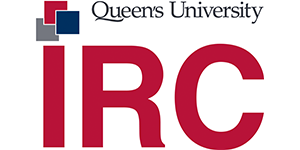Organizational Transformation at Queen’s University IRC uses evidence-based systems for critical success factors

IRC’s Organizational Transformation program uses evidence-based systems thinking, combined with emerging capabilities for synergistic transformation in a rapidly changing world. The program explores critical success factors, new leadership capabilities, action learning dynamics, and process skills such as system-wide collaboration, iterative solutions, and innovation as a way of life, not an event.
In 2020, “pivot” became the word to describe what most organizations and individuals had to do quickly during the pandemic. Everything had to change — and fast. Françoise Morissette, a facilitator and fellow at the Queen’s University Industrial Relations Centre (IRC), has combined the experiences of organizations during the pandemic with her expertise and research to develop a new Organizational Transformation program to guide individuals and organizations as they emerge from the pandemic and plan for a strong, successful and sustainable future.
Morissette, an expert who played a key role in developing and implementing Queen’s IRC’s Organizational Development curriculum and teaches several courses, explains: “A foundational building block is what the IRC founders laid down in the 1930s when they established one of the first industrial relations schools in Canada, intended for practitioners seeking to stay current in their field: research informs practice and practice informs research. When the pandemic hit, organizations had to respond quickly and creatively to change. Beer companies were making hand sanitizer and car manufacturers started producing ventilators. There are many lessons to be learned from those experiences.”
The IRC was also part of that pivot, transforming in-person courses into virtual programs, and adding free Community of Practice webinars and online meetings to help participants deal with the new realities of managing people remotely and helping employees suffering from anxiety.
“Organizational transformation is about reimagining, reinventing and redesigning the organization, not tinkering with an outdated program or service.”
Morissette has designed the IRC’s Organizational Transformation program using evidence-based systems thinking, combined with emerging capabilities for synergistic transformation in a rapidly changing world. The program explores critical success factors, new leadership capabilities, action learning dynamics, and process skills such as system-wide collaboration, iterative solutions, and innovation as a way of life, not an event.
“Organizational transformation is on a larger and deeper scale than organizational change,” she says. “While the latter is an event, such as restructuring a department, the former is an ongoing process affecting all employees and departments. Organizational transformation is about reimagining, reinventing and redesigning the organization, not tinkering with an outdated program or service.”
An important component of the program is the practice of Action Learning, an increasingly popular methodology for strategically identifying the way forward together. Employing an interactive approach, Action Learning leverages the knowledge, know-how and wisdom across the organization in order to increase engagement and reduce resistance to change.
“It’s all about ongoing, iterative transformation,” says Morissette. “We have so many examples of Action Learning from the pandemic that demonstrate how to roll with the punches and increase our comfort level with iterative processes instead of perfect plans.”
“Not so long ago, strategic plans were mostly created by executives with very little input from the workforce and other stakeholders such as customers, suppliers, industry experts,” she says. “Now, strategic plans are designed and implemented with people, not imposed on them. Leaders need a laser focus on systems synergy, alignment and connectivity for successful implementation.”
The transition to the post-pandemic world will require extensive upskilling for people and teams. The pandemic has also left many people having second thoughts about their career, creating challenges and opportunities for organizations seeking top talent. Moreover, location is increasingly irrelevant, providing new possibilities for people.
Morissette notes that people are seeking inclusive organizational cultures that are open to possibilities, and willing to embrace change, guided by leaders with the mindset, knowledge and skills to effectively guide whole-scale organizational transformation with caring, confidence and competence.
“New leadership capabilities have emerged,” she says. “People seek leaders who demonstrate empathy, build trust and lead collaborative teams that promote employee wellbeing and collaborative decision-making.”
Pre-pandemic, transformation was considered somewhat disruptive. Now, organizations understand how important it is to engage and involve internal and external stakeholders to respond to and prepare, as realities evolve. That means creating organic, paradigm-shifting processes, with multiple stakeholders working together to redesign, renew, and re-imagine organizations through innovation and collaboration, says Morissette.
“Now, instead of trying to create the perfect plan, change is implemented interactively and iteratively, learning from it, and making more changes,” she says. “It’s a continuous cycle of leveraging your experiences to respond to evolving challenges and opportunities. How good can we be? Don't just settle for continuous improvement; go for game-changing revolution.”
It’s important that we focus on the silver lining of the pandemic, she says. While it has been a trying ordeal for individuals, organizations and communities the world over, the lessons learned can be a valuable tool for building a sustainable future.
“The pandemic created the conditions to reduce fear of change and transformation,” says Morissette. “And we’re incorporating that into the program — equipping people with the language, context and skills to lead and facilitate transformation in their organizations. It’s time to dream big and think radically.”
Organizational Transformation runs Oct. 18-22, 2021 (11 am-3 pm ET). To register or learn more about other IRC programs, visit: irc.queensu.ca.





